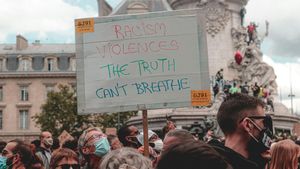World Leaders Gather at COP29 to Combat Climate Crisis
More than 100 world leaders have convened in Baku, Azerbaijan for the annual U.N. Climate Change Conference, known this year as COP29. Amid buzzing concerns over climate change's alarming effects on our planet, this summit is taking place just as numerous leaders have chosen to skip the event altogether. U.N. Secretary-General António Guterres opened the summit with staggering remarks, describing the previous year as a "master class in climate destruction". He warned attendees, famously stating, "The sound you hear is the ticking clock," signaling the urgent need for action.
Adding to the gravity of the situation, Guterres emphasized the need for the transition to clean energy, claiming no entity, be it businesses or governments, can halt this momentum. Governments and citizens alike are feeling the weight of climate-related crises — from catastrophic wildfires to devastating floods—leading many to wonder if COP29 can truly address these mounting challenges.
At the heart of discussions this year is the focus on fossil fuels and the increasing pressure on corporations like Shell, which recently faced legal challenges for its significant role in global emissions. An appeals court in the Netherlands reversed previous mandates requiring Shell to cut emissions by 45% by 2030, setting back the efforts of environmental groups who had worked tirelessly to hold corporations accountable. Following this court decision, Philip Evans from Greenpeace UK voiced discontent, noting it as "a setback for people everywhere dealing with the climate chaos fueled by Shell’s reckless polluting." The reality on the ground is setting off alarms, with green advocates pushing for more accountability across big industries.
While the judicial rulings may seem discouraging, the situation differs across the Atlantic. At COP29, the Biden administration has announced the first-ever nationwide fee on methane emissions imposed on oil and gas companies. Environmental Protection Agency officials unveiled this rule during the conference, marking it as the U.S. commitment to taking meaningful steps against climate change, especially relevant in the wake of the recent U.S. election results. The proposed fee could start as low as $900 per metric ton of methane emissions, gradually increasing to $1,500 by the year 2026, aiming to push the industry toward sustainable practices.
This bold move is framed as part of President Joe Biden’s broader climate strategy outlined within the Inflation Reduction Act. EPA Administrator Michael Regan has underscored how the fee could improve efficiency and benefit American jobs, solidifying the U.S.'s position on the global stage. Yet eyebrows remain raised over the potential backlash from the newly reelected former President Donald Trump, who has vowed to dismantle many environmental protections, including potentially scrapping the methane rules entirely, reflecting the contentious political atmosphere surrounding climate action.
Institutions and advocates alike are keeping their fingers crossed as they navigate this rapidly changing scenario. The fight to contain methane emissions is at the forefront of the conversation, as this potent greenhouse gas is responsible for nearly one-third of the rise in global temperatures attributed to human activity. Methane’s impact reaffirms its reputation as the "super pollutant" within discussions at COP29, leading experts to urge for comprehensive policy changes.
But as COP29 progresses, numerous countries still face the dichotomy of addressing their climate commitments versus satisfying their economic needs. Developing nations, which play significant roles as the frontline for climate disasters, call on richer nations to follow through on financial pledges to support their climate mitigation and adaptation strategies. There’s growing frustration within these nations as promises made during past summits have largely gone unfulfilled, leaving communities vulnerable and unprotected.
A more balanced discussion is necessary to address equity and fairness as climate policies are decided. Voices from vulnerable regions must be prioritized as COP29 aims to create actionable plans to face the climate crisis. The summit might just be the opportunity global leaders need to pivot from discussions filled with skepticism to collaborative actions bolstered by shared responsibility.
Over the course of COP29, various sessions will address topics like sustainable energy usage, global supply chains, and future financial commitments for sustainability initiatives. The slow pace of legislative reform exacerbates tensions as activists and citizens alike push for rapid changes. Demonstrations are expected around the venue, as climate activists exert pressure on world leaders to take immediate, effective steps toward reversing climate degradation.
While uncertainty surrounds COP29’s outcomes, the mood is colored by urgency. Changes are needed now, and many are hoping this summit will serve as the turning point for global climate action. The world waits to see if words spoken at COP29 will evolve beyond mere sentiments and lead to lasting change. After all, the clock is ticking.



